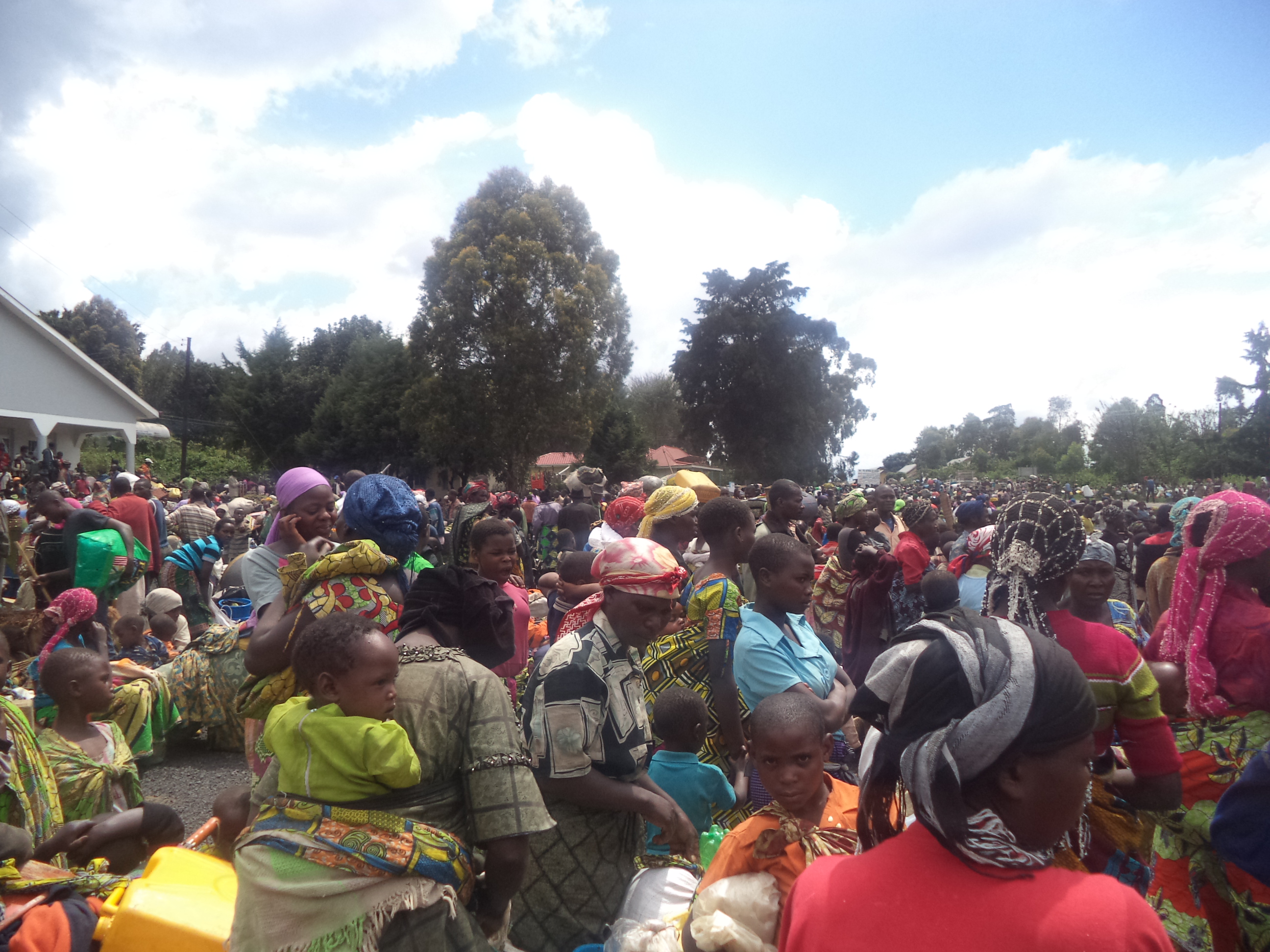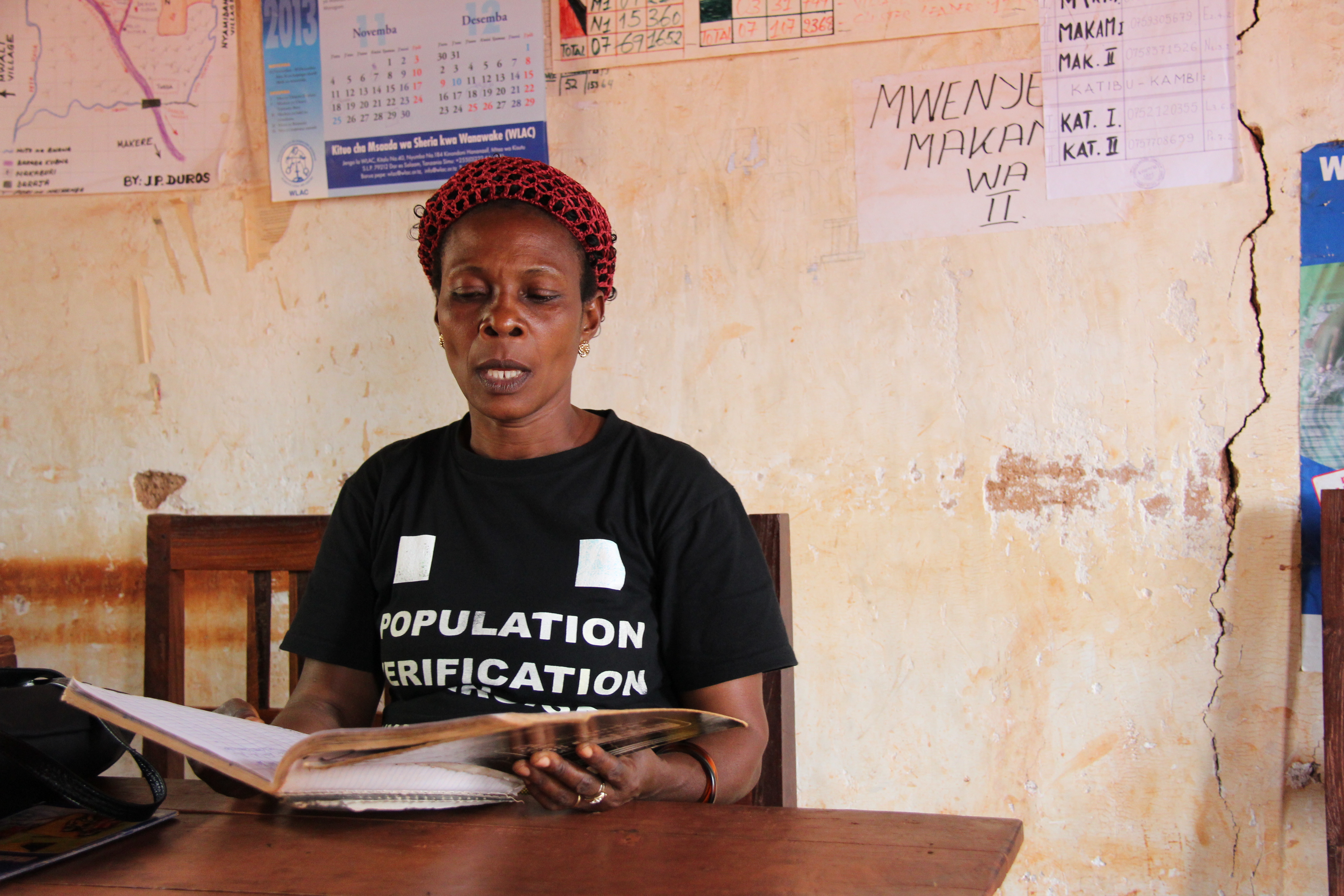Rebellion's end in Democratic Republic of the Congo comes too late for one family
Rebellion's end in Democratic Republic of the Congo comes too late for one family

KISORO, Uganda, November 6 (UNHCR) - This week, Uwimana* lost her parents and two siblings, victims of artillery fire in one of the last actions of the 18-month conflict between the Congolese armed forces and the rebel M23 movement.
But the end of the fighting in Democratic Republic of the Congo's North Kivu province will come as small comfort to the 17-year-old, who watched her younger brother die in a Ugandan hospital from excessive bleeding after being hit by shrapnel in Monday's attack. He died hours after both their parents and Uwimana's younger sister were killed instantly when a shell hit their village, Cyengerero.
"There's nothing for me in Congo, I will not go back," the bitter 17-year-old pledged as she stared out of a dirty window in Kisoro Hospital, which receives medical support from UNHCR's health care partner, Medical Teams International.
Uwimana's 15-year-old brother, Bruno, was one of 18 Congolese refugees admitted to the hospital in south-west Uganda with serious injuries on Monday, at the height of the fighting as the Congolese army made its final push against the M23 in hills near the vital border crossing of Bunagana. By the time the M23 announced the end of their insurgency on Tuesday, a baby with spinal injuries had also died in the hospital.
The teenager is still in shock; she rubs a table in the duty nurse's station as she speaks about her ordeal, unable to look people in the eye when talking about the explosion that killed her parents and six-year-old sister.
Uwimana only survived the blast because she was inside the house hurriedly packing belongings when the artillery round fell as her siblings played in the garden. She saw the carnage as her family members were cut down. "When the bombs fell I wasn't frightened - I felt strong, but when I saw my mother was dead I became scared," she recalled, adding that things happened so quickly.
"We left my parents, not even covered, and picked up the survivors and ran," she said, referring to two other brothers, one of whom carried their baby sister. Uwimana made a sling from a shawl and used it to carry Bruno, who was in a lot of pain.
"My brother asked, 'Are you going to leave me?' I didn't say anything, I just picked him up." The teenager had thigh injuries and his left leg was broken, so she had to carry him with care. At the Ugandan border, soldiers put Bruno's leg in a splint and he was brought to the hospital at around 8 p.m. in a Medical Teams International ambulance. Four hours later, he died while being given a second blood transfusion.
Staff at the government hospital in Kisoro said the sudden influx of injured civilians put a strain on the resources of the facility. "When I arrived there was blood everywhere. The [operating] theatre is small and some people were lying outside. Those being given first aid were being carried to the wards," said Afia Mutuza, a nurse. MTI has provided the hospital with intravenous therapy fluids and lines, but there is a shortage of drugs and staff to cope.
Most of the injured brought to Kisoro on Monday are recovering from their wounds, like Baraka Ndagijlmana. He was wounded by shrapnel from a shell that landed in Bunagana, on the Democratic Republic of the Congo side of the border town. He arrived at the hospital on Monday morning on the back of a motorbike taxi.
"I felt something heavy fall on me and all the people around me were down," recounted Baraka, who has had to flee fighting many times in the past. "We are forever running, it is part of our daily life - there are so many times I've lost count," he said, while adding: "I stay because it's my home."
Many are now hoping that relative peace will return to North Kivu so that people can start returning to their homes, even though the province remains volatile and there are still more than 30 armed groups in the lawless region. But those who have lost too much, like Uwimana, believe it offers little.
She now hopes to be able to stay with her uncle, who lives in Uganda and to find her three missing siblings, whom she had sent ahead on Monday to safety. She has now become the head of the family.
* Names changed for protection reasons.
By Lucy Beck in Kisoro, Uganda








